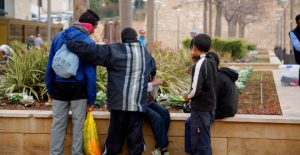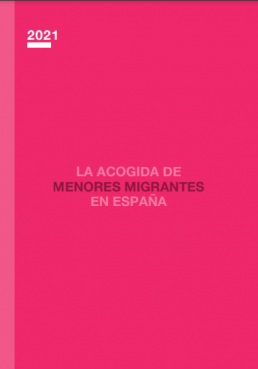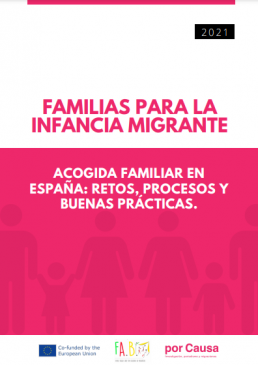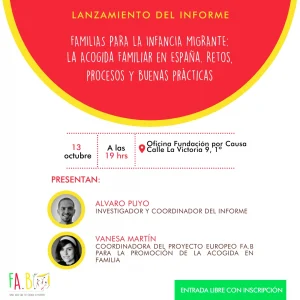Noticias
Archivo de noticias locales e internacionales
En esta página hemos recopilado todas las noticias, eventos y artículos sobre el proyecto FA.B. Together.
¡Disfrute de la lectura!
april:
New family fostering project in Spain
This month we have collaborated in the presentation of the ACRESCERE Foundation’s family foster care project for migrant minors arriving alone in Spain, financed by the Community of Madrid, but which works throughout Spain. Within this programme, two minors have already been placed with families and many more applications are being processed. If you are interested in foster care you can get more information here.
REPORTS:
«The reception of migrant minors in Spain»
Analysing the legislation in force on this issue, both at EU, state and regional level, we realise that the foster care process in Spain does not establish any difference based on nationality. And both legislation and jurisprudence agree that foster care should be a preferential alternative to care in children’s centres.
Unfortunately, as there is always a but, in practice this is not the case.
Therefore, it is not in the legal sphere that we have to look for an answer. In reality, what is going on?
There is a multiplicity of administrations and public agents involved in the issue, and the contradiction between the laws on child protection and the laws on foreigners, which hinders the process of foster care for migrant minors and is an obstacle to the proper care of migrant children.
In short, there is a certain lack of interest on the part of public administrations, which do not perceive the failings of the system for the reception of migrant minors as a problem.
As a result, a series of bad practices are perpetuated that increase the likelihood of migrant children falling into serious situations of social exclusion. Such as, for example, age determination tests, with large margins of error, or the overcrowding of children’s centres, among many others.
This was reflected in our report, «The reception of migrant minors in Spain», which you can see here.
«Families for migrant children»
In order to find out more and raise awareness in society, we asked ourselves 3 questions:
- Why is it that in Spain, despite the fact that the regulations value family foster care as a priority, it hardly exists in reality?
- What are the main issues affecting young people who migrate alone to our country, being a particularly vulnerable group?
- What benefits can foster care have in overcoming them and ensuring a successful transition to adulthood?
We researched, argued and concluded that indeed foster care can provide great solutions to the challenges facing migrant children:
- Streamlining bureaucratic processes to regularise their administrative situation.
- Facilitating the transition to adult life: accompanying them in the requirements of access to training, employment and the health system.
- Accompany them in their emotional and psychological well-being.
And most importantly… it is not only the people in care who benefit. There is a positive social impact that helps to fight against a bad perception on the issue of migrant children. The fact that they are linked to families close to them or from the same locality dilutes prejudices and racism.
This was reflected in our report, «Families for Migrant Children», which you can see here.
NEWS ARTICLES:
Ya están aquí los menas rubios
De todos los mensajes xenófobos que la ultraderecha ha ido lanzando en estos últimos años, el que mejor ha calado es el de la criminalización de los jóvenes migrantes (…) Leer más

Los menores extranjeros en la diana del discurso de odio
Los menores que migran solos acaparan la mayoría de los ataques en la red. Jóvenes ex-tutelados combaten mentiras y ataques contra ellos (…) Leer más

Tengo 18 años. ¿Y ahora, qué?
Los expertos denuncian que en el caso de los chicos y chicas migrantes no acompañados se prima la condición de migrante frente a la de menores: «El Estado olvida que son niños, que son nuestro futuro» (…)Leer más.

Hogares para jóvenes extranjeros
La acogida familiar a menores extranjeros cuenta con muchas trabas burocráticas mientras hay cada vez más familias españolas que acogen a jóvenes mayores de edad que están fuera del sistema. (…) Leer más

La compasión que transforma el mundo
Si el rasero más básico de la decencia colectiva es el modo en que tratamos a la población vulnerable, el acogimiento familiar de menores extranjeros solos constituye una forma radical de dignificación social (…) Leer más
Huérfanos en ucrania, huérfanos aquí
Mi hermana Raquel es maestra de educación primaria. El pasado mes de septiembre, una vez empezado el curso la llamaron para trabajar en un colegio de Valladolid. Esta vez el reto era diferente al de años anteriores. La persona al otro lado del teléfono le explicó que sería una maestra de apoyo para niñas y niños ucranianos que no tenían familia y que serían tutorizados por la Junta de Castilla y León temporalmente (…) Leer más
Jóvenes que dan vida a la España vaciada
Mientras muchos menores migrantes viven en la calle después de alcanzar la mayoría de edad, el municipio de La Puebla de Almoradiel pone en marcha un proyecto y da vivienda a varios de estos jóvenes (…) Leer más
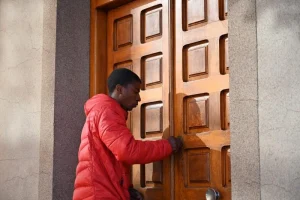
Emilia, la mano amiga que da un hogar a jóvenes migrantes
Desde Somos Acogida, una asociación del madrileño barrio de Hortaleza, luchan para buscar alternativas a los migrantes que se quedan «en la calle» cuando cumplen la mayoría de edad. (…) Leer más
La acogida familiar de menores no acompañados
Arbitrariedad, disparidad y falta de recursos. Esa es la foto del estado de la acogida en familia a menores migrantes. La modalidad es prioritaria, aunque en la práctica apenas se lleva a cabo por caos burocrático y desconocimiento entre las familias (…) Leer más

Menores Migrantes: Lo que todo el mundo debería saber sobre la acogida familiar
El acogimiento familiar es una medida de protección para aquellos niños, niñas y adolescentes que, por diversas razones, no pueden vivir con sus padres. (…) Leer más.
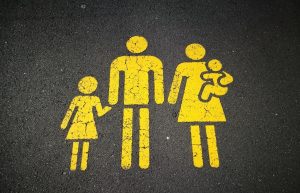
“Lo mejor que he hecho en mi vida es acoger a los menores migrantes que vivían en mi barrio”
Para los menores migrantes en España, es preferible la acogida familiar a la residencial, pero solo el 0,96% son acogidos en familias (…)Leer más.
¿Sabías que la ley nacional e internacional recomienda la acogida familiar para los niños y niñas que migran solos?
encuesta: ¿Son las familias en España acogedoras con la infancia que ha migrado sola?
Tanto la legislación internacional como la española, y el sentido común, indican que las niñas y niños sin una estructura familiar que pueda hacerse cargo de ellos, es decir, en desamparo o en riesgo, deben ser acogidas prioritariamente a cargo de familias (…) Leer más
